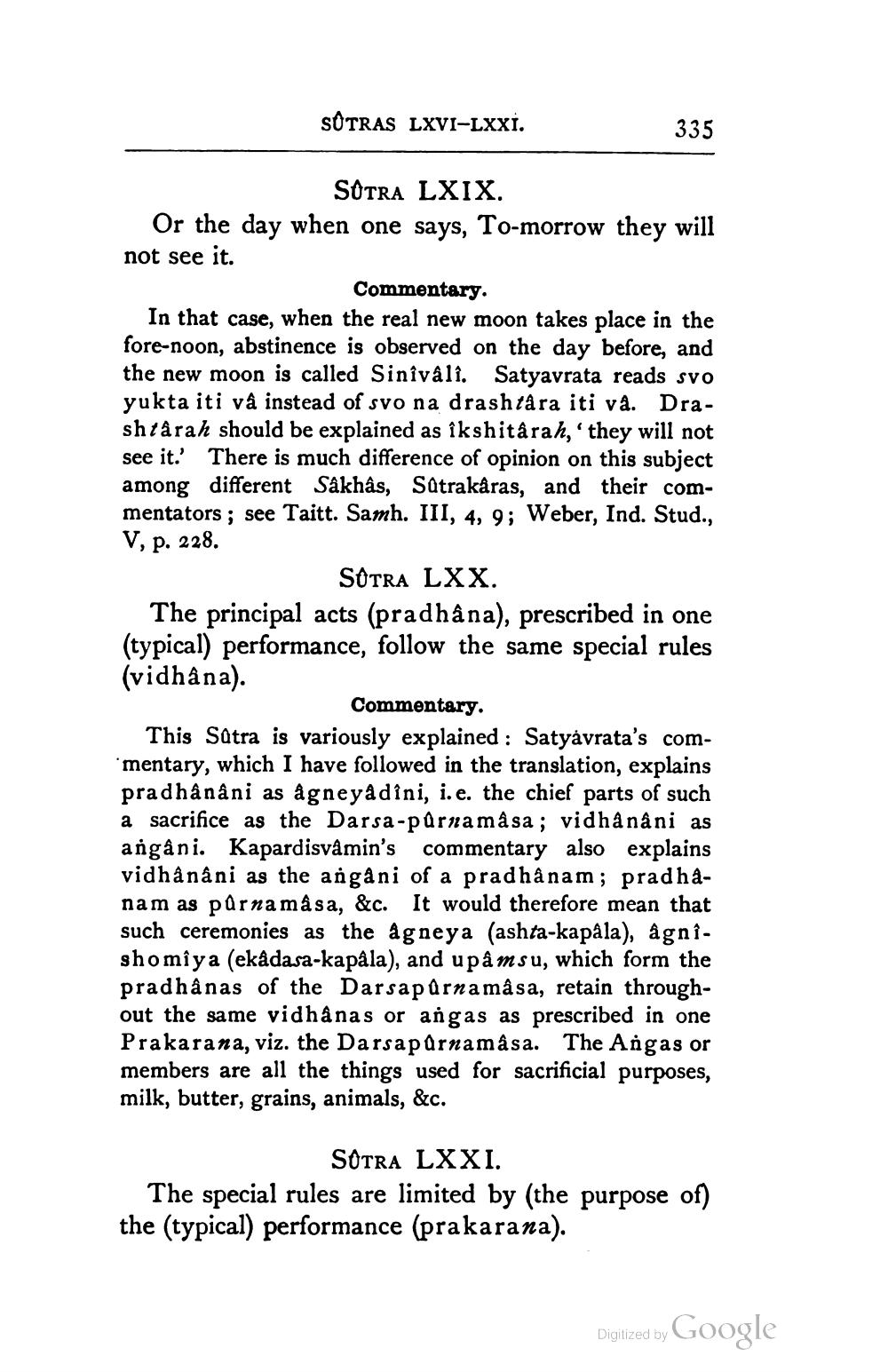________________
SOTRAS LXVI-lxxi.
335
SOTRA LXIX. Or the day when one says, To-morrow they will not see it.
Commentary. In that case, when the real new moon takes place in the fore-noon, abstinence is observed on the day before, and the new moon is called Sinivali. Satyavrata reads svo yukta iti va instead of svo na drash tara iti va. Drashtarah should be explained as ikshitârah, they will not see it. There is much difference of opinion on this subject among different Sakhâs, Satrakaras, and their commentators ; see Taitt. Samh. III, 4, 9; Weber, Ind. Stud., V, p. 228.
SOTRA LXX. The principal acts (pradhâna), prescribed in one (typical) performance, follow the same special rules (vidhana).
Commentary. This Satra is variously explained : Satyávrata's com'mentary, which I have followed in the translation, explains pradhânâni as âgneyâdîni, i.e. the chief parts of such a sacrifice as the Darsa-půrna masa; vidhånâni as angani. Kapardisvâmin's commentary also explains vidhånâni as the angani of a pradhanam; pradhanam as parna måsa, &c. It would therefore mean that such ceremonies as the agneya (ashta-kapala), agni. shomîya (ekådasa-kapala), and upâmsu, which form the pradhanas of the Darsapůrnamâsa, retain throughout the same vidhanas or angas as prescribed in one Prakarana, viz. the Darsaparnamasa. The Angas or members are all the things used for sacrificial purposes, milk, butter, grains, animals, &c.
SOTRA LXXI. The special rules are limited by (the purpose of) the (typical) performance (prakarana).
Digitized by Google




